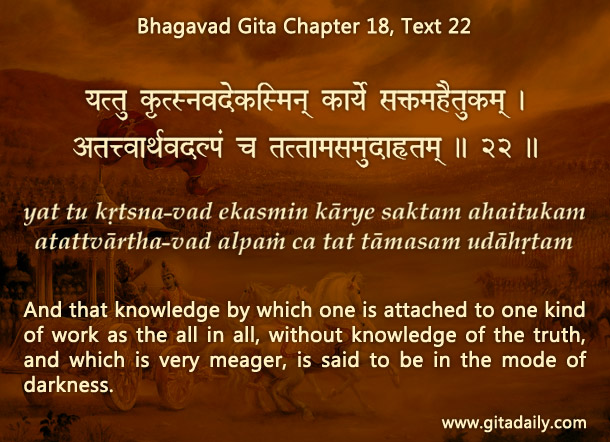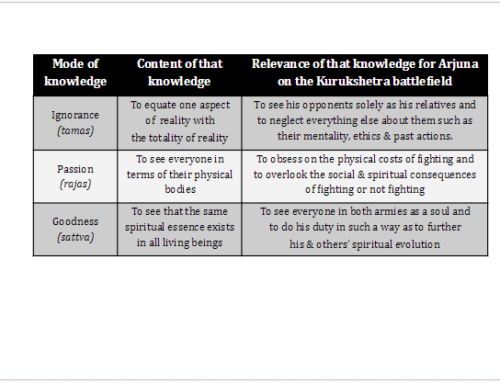How to be moral without becoming judgmental
Morality essentially centers on discerning which activities are acceptable and which aren’t. If we can’t or don’t make moral evaluations, we may become worse than animals — we may use our advanced human intelligence to pursue our animalistic desires.
Simultaneously, while making moral distinctions, we need to avoid becoming judgmental, lest we alienate people. We become judgmental when we label people based on the morality or immorality of their activities, wherein we reduce their identity to their activity. Thus, for example, we may pejoratively condemn some people for being meat-eaters even if they have several other virtues.
The Bhagavad-gita explains that we all are spiritual beings and are parts of God; there is inherent sanctity and even divinity to every living being. When we reduce people’s identity to their activity, then we are exhibiting perception in the mode of ignorance wherein we equate one small part of reality with the totality of reality (18.22). When we see the spiritual essence in everyone, our perception becomes more enlightened; it reflects the illuminating mode of goodness (18.20).
Why aren’t people’s identity and activity to be equated? Because their activity is temporary, whereas their identity is eternal. Even if they have been meat eaters lifelong. their identity extends beyond this life. By focusing on their eternal identity, which is far bigger than their present activity, we can avoid falling into the trap of judgmentality. Not only that, we can become more open-minded and resourceful enough to find out how we can help them access and activate their spirituality. And as they start appreciating and relishing non-material fulfillment, they may on their own give up the activities with which we might have otherwise equated them.
One-sentence summary:
Learning to evaluate activity is essential to morality, learning to not equate activity with identity is essential to spirituality.
Think it over:
- Why do we need to make moral distinctions?
- Why is it wrong to equate people with their activity?
- Do you label anyone based on their activity? How can you avoid such labeling?
***
18.20: That knowledge by which one undivided spiritual nature is seen in all living entities, though they are divided into innumerable forms, you should understand to be in the mode of goodness.
To know more about this verse, please click on the image
Explanation of article:
Podcast:



Thanks for Gita Daily quotes
Happy to be of service.
Thank you very much prabhuji. Your daily quotes are of immense value and benefit. Hari bol.
Thanks for your kind words; happy to be of service.
Spirituality is the cover of morality
The deeper understanding of morality stretches beyond just the general code of conduct for society. When the knowledge of people matures, then they come to understand that morality is only a guiding principle to the eternal progress. Liberty and Freedom of power are the wonderful gifts of God ; offered to us in the spirits of desire and hope for our progress forward. When we misutilize our gifts, we decelerate and regress backward to our under-qualified states.
When we act according to our qualifications, then we are perfectly in accord within ourselves and also with others. It is only when the qualification is overstepped or neglected, sin is born in an individual.
Morality comes to help there. She is there to tell you that you are more virtuous than what you think!
Thank you very much for a wonderful article.
Well-said. Thanks for your thoughtful comment.